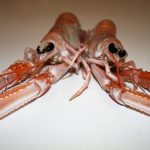The project of evaluating the traditional products of this particular breed of pig has numerous benefits, there is growing customer interest, and with that rises the number of breeders.
As Miroslav Kuskunovic/Agrobiz/Poslovni Dnevnik writes on the 18th of September, 2018, ham, salami, bacon, sorrel and fat from Turopolje pigs, one of the oldest pig breeds in the whole of Europe, are products which are gradually becoming increasingly sought after and recognised across the Republic of Croatia, as well as in the European Union.
Although these particular meat products are up to twenty percent more expensive than those of the more common breeds of pig, people in this business recognise their value, and this has been confirmed by market research as part of the European Commission’s research on the valuation of the traditional products of Turopolje pigs. Recently, the work of the public institution of the Lonjsko Polje nature park on the preservation of Turopolje pigs saw a declaration of one of the best four in Europe, and an acknowledgment pertaining to that was obtained at the international conference on EU agriculture held in French Nantes.
Lonjsko Polje nature park’s director Ivor Stanivuković has said that the aforementioned acknowledgment is of real significance, and that there is an increasing interest among smaller producers to join them in the project, and they themselves are engaged in the breeding of Turopolje pigs.
“At the beginning, there were thirteen breeders, and now we’ve reached eighteen of them. The number of fatlings (pigs) has jumped from 60 to 200, and within this [figure] we have 150 breeding sows, which speaks volumes about the potential that exists and that the breeding of these pigs and then their products can become something that is well sought-after and well established,” Stanivuković added.
It is believed that they can significantly increase production and encourage smaller OPGs to join. The next step is to build a facility that would offer breeders friendly prices. “The city of Novska has found us a space that could be transformed into a processing plant and the estimate is that it should have an investment of about 200,000 euro. We don’t have a closed financial structure so far, but I believe we’ll find a solution,” Stanivuković noted.
Stanivuković continued by saying that this would be a good example of so-called social partnership.
”We’re a public institution and we want our products to be branded and to have a logo to be present in our national parks, and [for our products] to be sold in special stores and souvenir shops, for [the possibility for us to] showcase something that the rest of Europe hasn’t got.”
“We’re looking forward to the growing demand for these products because breeders are encouraged to continue breeding this unique breed,” added the Lonjsko Polje nature park director.
During his two years of work on the project, his institution conducted experimental production, market research, financial analysis, a marketing plan, trademarks and product packaging with partners, and sales were organised. Owing to all of those measures taken, the number of Turopolje pig breeders began to increase, and in order to satisfy the fresh new customer interest, an overall increase in the number of sows and young pigs quickly followed. The aforementioned work also promotes keeping the pigs naturally, in nature.
Click here for the original article by Miroslav Kuskunovic/Agrobiz/Poslovni Dnevnik








